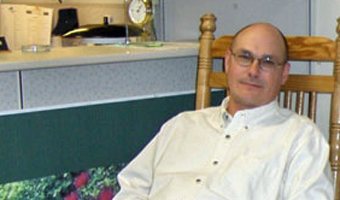
The Wealth and Poverty Theme presents Dr. John Watkins on “Complexity and the Future of an Aging Appalachia” on Friday, Feb. 9, from 4-5 p.m. at Alden 319.

Dr. John Watkins
John F. Watkins is a Professor of Gerontology, Health Behavior & Society, and Geography at the University of Kentucky. Trained first in biology and medicine and then as a mathematical demographer, but armed with ethnographic skills associated with life history narratives, he applies his craft in studies of the demographic processes of population aging and the aged, population growth and redistributional impacts, and life course influences on later life health behaviors and outcomes. John is past president of the Population Specialty Group and Aging Specialty Group of the Association of American Geographers, served on the senior advisory panel of the National Science Foundation, is a Fellow of the Association for Gerontology in Higher Education, and has received numerous departmental, college, university, and national awards for his attempts at teaching and advising.
Abstract: Aging represents a complex life span process, involving myriad influential factors ranging from the molecular scale (i.e., genetics and epigenetics) though individual behavior and agency, and on to the canvas of society and environments upon which individuals and groups operate. Too often the lay public, and even many scholars and professionals, adopt a reductionist perspective when addressing the process and outcomes of aging: seniors will suffer if Medicaid is threatened; cumulative head trauma over time will increase the risk of dementia and death; a diabetes pandemic in America will shorten life expectancy; older people buy way too much cat food. Such issues are important, but effective remediation or resolution of such issues – indeed all aging-related issues – requires attention to and appreciation of the inherent complexity of aging. Using Appalachia as a social/environmental canvas, this presentation will introduce the concept of “system heterodynamcs” as a means of better capturing the complexity of individual and population aging processes. The concept will then be applied in the critical treatment of several economic and health related issues, with an eye towards visioning a future of aging through the lens of complexity.
His talk is cosponsored with the Appalachian Rural Health Institute, Child and Family Studies, Social and Public Health, and College of Health Science and Professions. It is part of a week in February at Ohio University dealing with identities and inequalities. Wealth & Poverty Week on Identities and Inequalities is Feb. 5-9.
About Wealth & Poverty Week on Identities and Inequalities: Our identities affect our lives profoundly; some start impacting us before we are even born and continue until we die. The enforcement of identity norms and the hierarchies associated with different identities can be highly problematic and result in undesirable outcomes. At the same time, our identities can often be a source of belonging and pride. The Wealth and Poverty Week on Identities and Inequalities brings the Ohio University community together to discuss specific inequalities related to identities and also how identities can be part of the solutions to these inequalities.
Any questions? Email Yeong Kim at kimy1@ohio.edu




















Comments